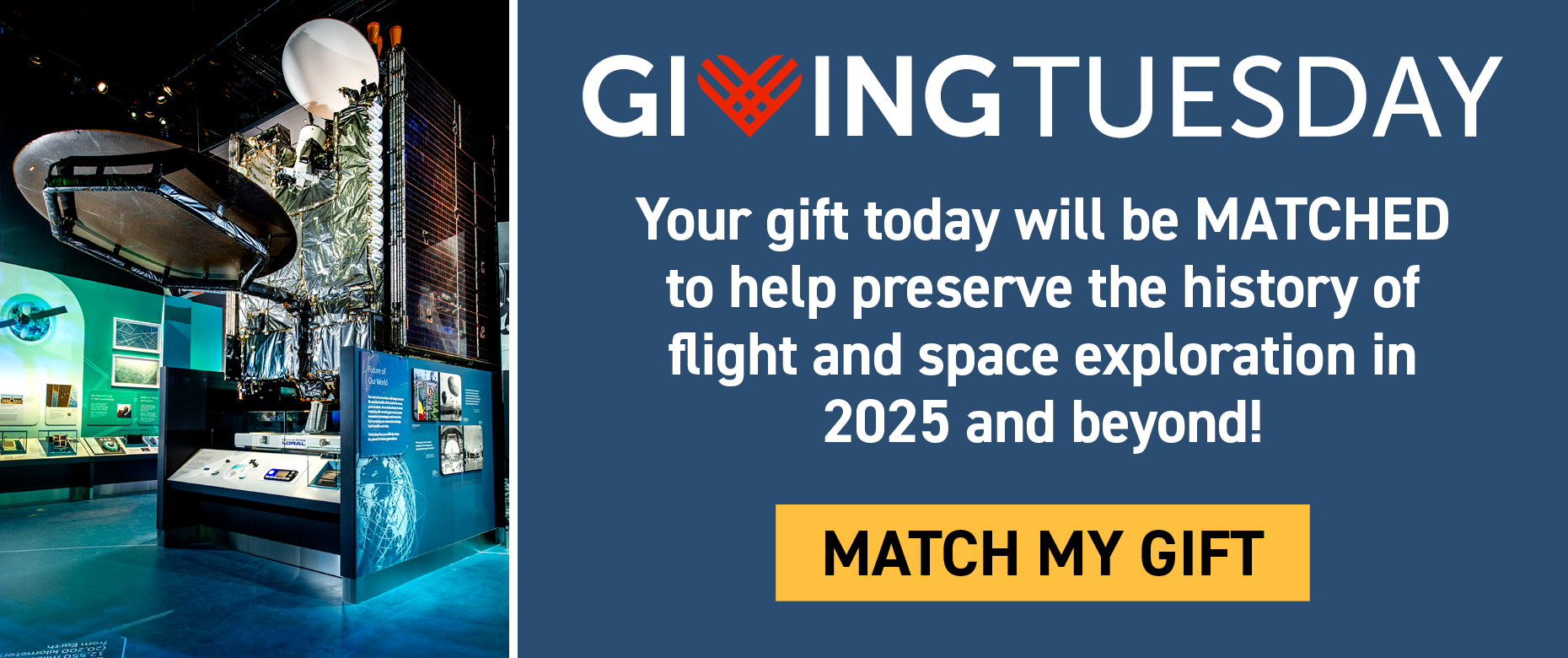All Stories
Showing 1571 - 1580 of 1717
The 2011 Major League Baseball season starts today at 1:05pm, when the National Air and Space Museum’s hometown Washington Nationals host the Atlanta Braves at Nationals Park. This afternoon the red and white uniforms of the Nationals will stand out against the bright green of the field. In the late 1950s, players took to the field of the U.S. Naval Air Material Center in Philadelphia wearing a different uniform—B.F. Goodrich Mark IV spacesuits.
The Visitor Services Division at the National Air and Space Museum is shaking off the winter doldrums and preparing for another exciting summer season.
The first decade of the twenty-first century has offered both serious challenges and enormous potential for the development of new human launch vehicles that could finally achieve the long-held dream of reliable, affordable access to space. But at the end of the decade, the policy questions posed by the 2003 loss of Columbia about the future U.S. human spaceflight still loom large.
On March 18, 2011, at 8:45 pm EDT, MESSENGER became the first spacecraft ever to enter Mercury's orbit. In this blog, Tom Watters reflects on the importance of this achievement.
As we begin to take occupancy of our new home in the Steven F. Udvar-Hazy Center’s new wing, and begin the process of outfitting the Mary Baker Engen Restoration Hangar, we are faced with the daunting task of moving all of our equipment into the new spaces and setting up an environment which will be favorable to the preservation and restoration of our priceless artifacts for decades to come. This is likely to be a lengthy process but we have begun to deliver selected artifacts so that when the viewing area becomes accessible, visitors will be able to see examples of our gems in the rough. Each of these aircraft has been in storage at the Paul E. Garber Facility in Suitland, Maryland for years, where the Museum's restoration work had taken place for decades. These aircraft are seldom seen by the public, and are all in need of preservation or restoration treatments.
For a number of years now, the United States has set aside February and March to celebrate Black History Month and National Women’s History Month, respectively. While these commemorations are praiseworthy, they should not disguise the fact that they have been rather contentious culturally. Some would argue that it is insulting to African Americans to celebrate their history for only one month every year. In the case of women, National Women’s History Month has become a call to arms in an ongoing struggle for women’s rights, to ensure educational and economic opportunities for all women, and for ending violence against them.
On December 7, 1941, a US Navy squadron consisting of ten Sikorsky JRS-1 amphibious seaplanes was on station in the Hawaiian Islands. Shortly after the Japanese attack that Sunday morning, the planes were launched in an effort to locate enemy submarines and ships near Oahu.
How did you get an airplane inside the building? Is there life on other planets? What EXACTLY is GPS and how does it work? Why in the world is that in this museum? We hear these questions every day. There’s so much that goes on in museums that people just don’t understand. And there are a lot of interesting artifacts tucked into smaller galleries that visitors simply don’t notice. Then there are the GREAT stories behind every artifact – stories that just don’t fit on a label.
The announcement last year that Bill Moggridge was selected to be the new head of the Smithsonian’s Cooper-Hewitt Museum in New York gave me pause. In my daily work I tend to stay on a narrow path of aerospace-related topics, but that name sounded familiar. A glance at my bookshelf gave me the answer: before joining the Cooper-Hewitt, Moggridge was a co-founder of the international design firm IDEO, and while there he played a crucial role in the design of the world’s first laptop computer: the GRiD Compass, first marketed in 1982. The unusual capitalization of “GRiD” was a trademark of the company that developed it.
If you’re looking for some online fun, try out several Web activities from our newest exhibition, The Barron Hilton Pioneers of Flight Gallery. The exhibition introduces some of the colorful aviation personalities from the 1920s and 1930s.
